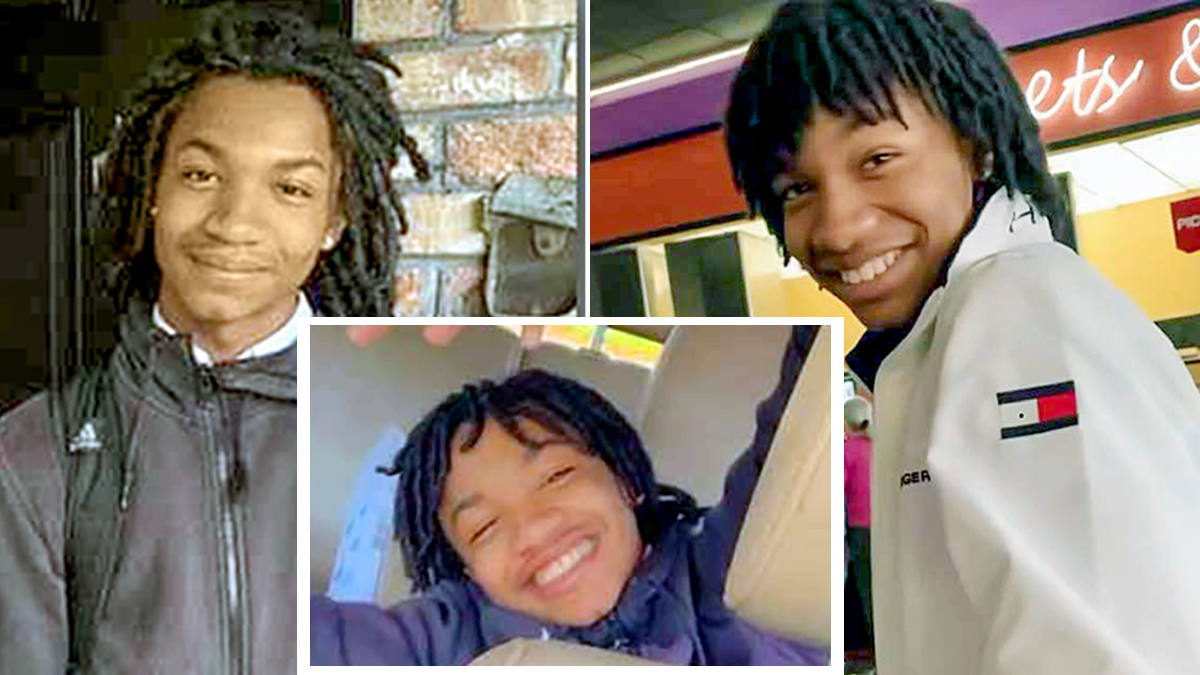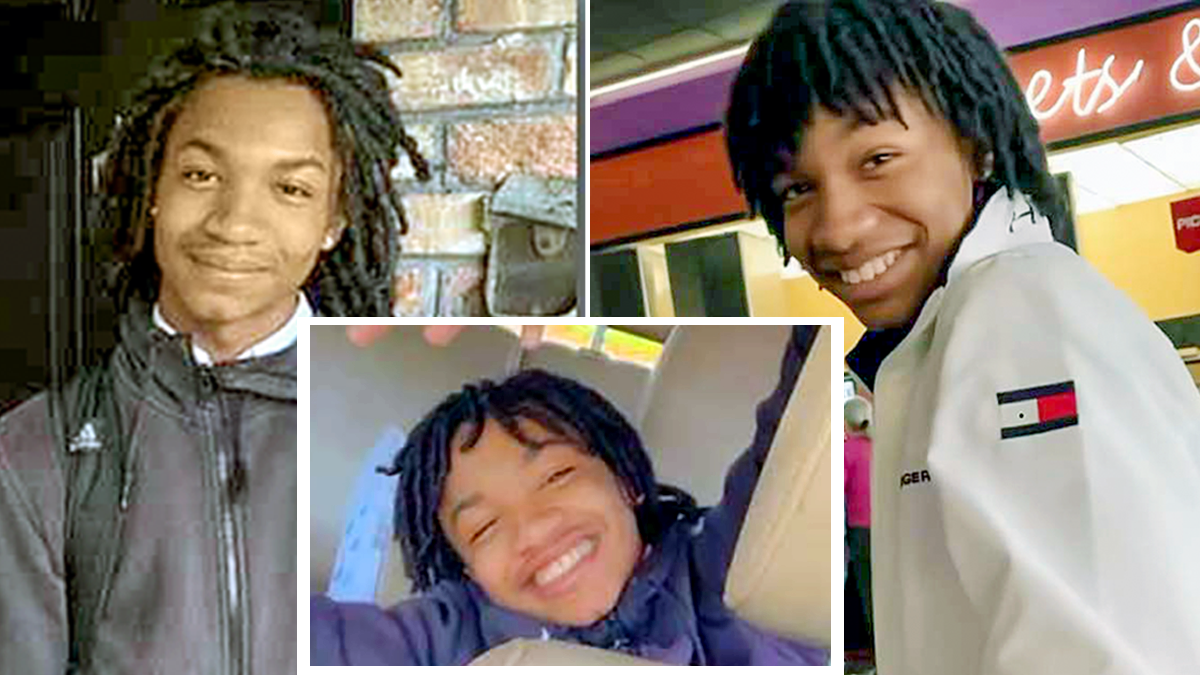‘What Are We Going to Do With This?’: Alabama Cops Shoot Black Boy In Raid Before Allegedly Stepping Over His Body to Terrorize Other Relatives While Looking for Brother Who Did Not Live At Home
It was over eight grams of marijuana that Alabama police conducted a no-knock, pre-dawn raid on a Black family last year, shooting a 16-year-old boy before stepping over his body as he lay withering in pain from his injuries to terrorize the other family members in the household.
“What are we going to do with this?” a Mobile police officer asked the other cops in an apparent reference to the dying teenager on the floor on Nov. 13, 2023, according to a lawsuit filed in federal court last week.
What they did not do was allow paramedics to transport Randall Adjessom to the local hospital – which was about eight minutes away – until almost an hour later, when he was pronounced dead.
“As a result of Police Officer Defendants’ shooting of the minor and their failure to render his timely aid, Randall died,” states the lawsuit filed by the national law firm Grant & Eisenhofer. “Randall’s death was both preventable and foreseeable.”

Mobile police were actually looking for Randall’s 18-year-old brother, Deangelo Adjessom, who did not even live at the house they raided, where they ended up finding eight grams of marijuana after killing Randall, which is just slightly over a quarter-ounce.
While medical marijuana became legal in Alabama in 2021 – a law that is still being disputed in courts – state law still makes it a misdemeanor to possess less than two pounds of marijuana for personal recreational use, punishable by up to a year in jail.
Alabama law also makes it a felony to sell any amount of marijuana, according to the Marijuana Policy Project.
In October, a grand jury indicted Deangelo Adjessom over the eight grams of weed on the misdemeanor charges of possession of marijuana as well as possession of drug paraphernalia and possession of a gun, which are also misdemeanors.
But he was also charged with felony first-degree assault over a separate incident where he was accused of participating in a drive-by shooting that left a person with non-life-threatening injuries.
The deadly raid that killed his brother was captured on police body cameras, and the footage has been viewed by attorneys and members of the family but has not yet been made public.
The names of the officers involved in the raid have also not been made public, which is why they are listed as “John Does” in the lawsuit.
Pre-dawn Raid
Mobile police said they had been investigating the home for “several weeks” after receiving a tip from a neighbor about “suspected drug activity” in the house, the lawsuit states.
On Nov. 9, 2023, just four days before the raid, Mobile police pulled over Deangelo Adjessom and “discovered a small amount of marijuana, a firearm, and what it considered to be evidence of intent to distribute marijuana.”
The lawsuit also states that Deangelo cooperated with police by waving his Miranda rights and agreeing to be interviewed but they ended up releasing him despite having enough evidence to charge him.
Perhaps they were looking for a much larger amount of marijuana, which is why they asked a judge to sign off on a warrant to raid the home – even though Deangelo did not even live at the home.
However, the warrant signed by the judge did not allow for a no-knock, pre-dawn raid, which is exactly what took place during the early hours of Nov. 13, 2023.
“MPD did not seek judicial authorization for a no-knock entry; MPD did not obtain supervisory approval for a no-knock entry; and MPD did not obtain felony-level prosecutor’s office approval for the same,” the complaint states.
“To be clear, the subsequent warrant executed by the Court did not authorize predawn, no-knock execution of the warrant.”
Mobile police broke into the home at 5:37 a.m., about 40 minutes before the sun rose at 6:16 a.m.
The lawsuit states that Randall woke up thinking the house was being robbed, so he grabbed a gun to defend his grandmother, mother, aunt, and sisters “from unknown intruders breaching his childhood home” – which is legal under Alabama’s castle doctrine.
But he tried to surrender as soon as he saw they were cops, according to the complaint.
“As Randall rounded the corner into the hallway, he saw that the intruders were police and immediately put his hands in the air and took a step backwards towards his bedroom. While Randall was in the process of retreating, and despite the fact that he had not made any verbal threats or attempted to fire the weapon, John Doe Mobile Police Officer 1 shot Randall four times through the abdomen and torso.
“Randall immediately fell to the ground, writhing from the pain and shock of being shot multiple times. At the time that Police Officer Defendants gunned Randall down, he had not committed any crime, made any verbal threats, or resisted or evaded arrest; he was retreating from their intrusion.”
The lawsuit states the indifference to human life demonstrated by Mobile police officers during the raid stems from Mobile Police Chief Paul Prine, who was quoted by fellow officers as saying, “I’m not concerned with what the media and public thinks about the police. Fuck the public.”
“Chief Prine’s comments, which were apparently echoed for months by other MPD officers, evince the Department’s long-standing disdain for Mobile’s residents, like Randall and his family,” the complaint states.
Chief Prine was fired earlier this year by the city council for creating “strife and division within the city,” according to Fox 10.
The Brown Report
The shooting death of Randall Adjessom was one of six incidents against Black people, including four who died, that were highlighted in a 100-page report prepared by Kenyen Brown, a former U.S. Attorney for the Southern District of Alabama.
Published in April 2024, the heavily redacted “Brown Report” includes interview statements from several Mobile police officers, including three who confirmed that Chief Prine told officers to “f-ck the public” during a meeting with about 20 officers.
One of the officers told Brown that the chief’s words became a running joke among officers for the next two months, and they would repeat his words to show they were under no expectation to respect the public they are supposedly sworn to protect and serve.
One of those cops told Brown that Prine “bragged about being able to look someone in the face and make them believe they were a friend when he actually didn’t care anything about them.”
Prine’s disdain for the public was evident when he blamed both the media and the public for questioning police tactics that led to Adjessom’s death.
“He said that the reason to conduct a pre-dawn warrant is to have an element of surprise,” according to the report.
In regards to the deadly shootings, he says the media and public have dictated the narrative and he stated that these are not just innocent people who had been shot because when anyone points a gun at an officer, it is a potentially dangerous situation. He emphasized the importance of having all angles when discussing these incidents.
But the main angle in this shooting is that a 16-year-old boy was shot and killed over eight grams of weed after police broke into his home before dawn with a warrant that did not allow for a pre-dawn raid while looking for a man who did not even live there.
“Despite knowing the danger posed by predawn raids, which include the increased risk of excessive or otherwise unnecessary force, as well as risks of avoidable injury and death to uninvolved persons, MPD took no action to restrict the use of such raids or lessen the danger these raids posed to members of the public,” the claim states.

